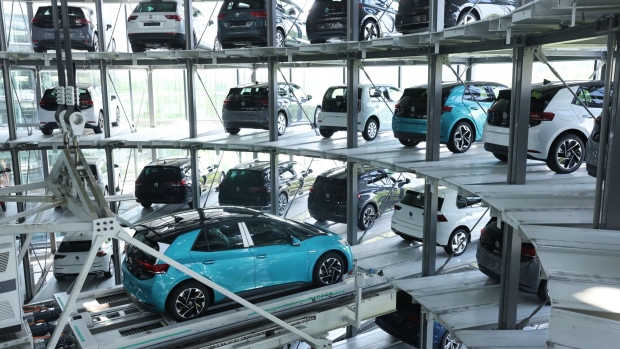Jan 30, 2024
Europe’s Biggest Car Market to See First EV Slump Since 2016
, Bloomberg News

(Bloomberg) -- German electric-vehicle sales are projected to drop for the first time in eight years as signs of a slump in the EV market are spreading.
The VDA lobby expects shipments of purely battery-powered cars to decline 14% to 451,000 units this year as subsidy cuts weigh on demand, it said Tuesday.
Europe’s biggest auto market has been one of the main drivers of EV adoption, but inflation, high car prices and sub-par charging infrastructure are weighing on demand. A number of manufacturers have pushed back rollouts of new electric models, and rental firms are paring purchases for their fleets.
Volkswagen AG and Renault SA this week walked back plans to sell shares in their EV businesses, deterred by slowing demand and a brutal market for initial public offerings.
Read More: VW Joins Renault in Pulling Back From EV Stock Offering Efforts
In December, Chancellor Olaf Scholz’s coalition government discontinued a subsidy for EVs at short notice, a year earlier than previously planned.
EV sales in Germany last declined in 2016 and have climbed each year since. The country sold over 524,000 fully electric cars in 2023 — more than any other market in Europe.
The projected drop this year means the share of purely battery-powered cars in Germany would slip to 16%, from around 18% in 2023.
(Updates with VW and Renault plans in fourth paragraph. A previous version of this story corrected the years figure in the headline.)
©2024 Bloomberg L.P.






